Top Sectors Benefiting from AI
Chat GTP: https://chatgpt.com/
Top Sectors Benefiting from AI
Table of Contents
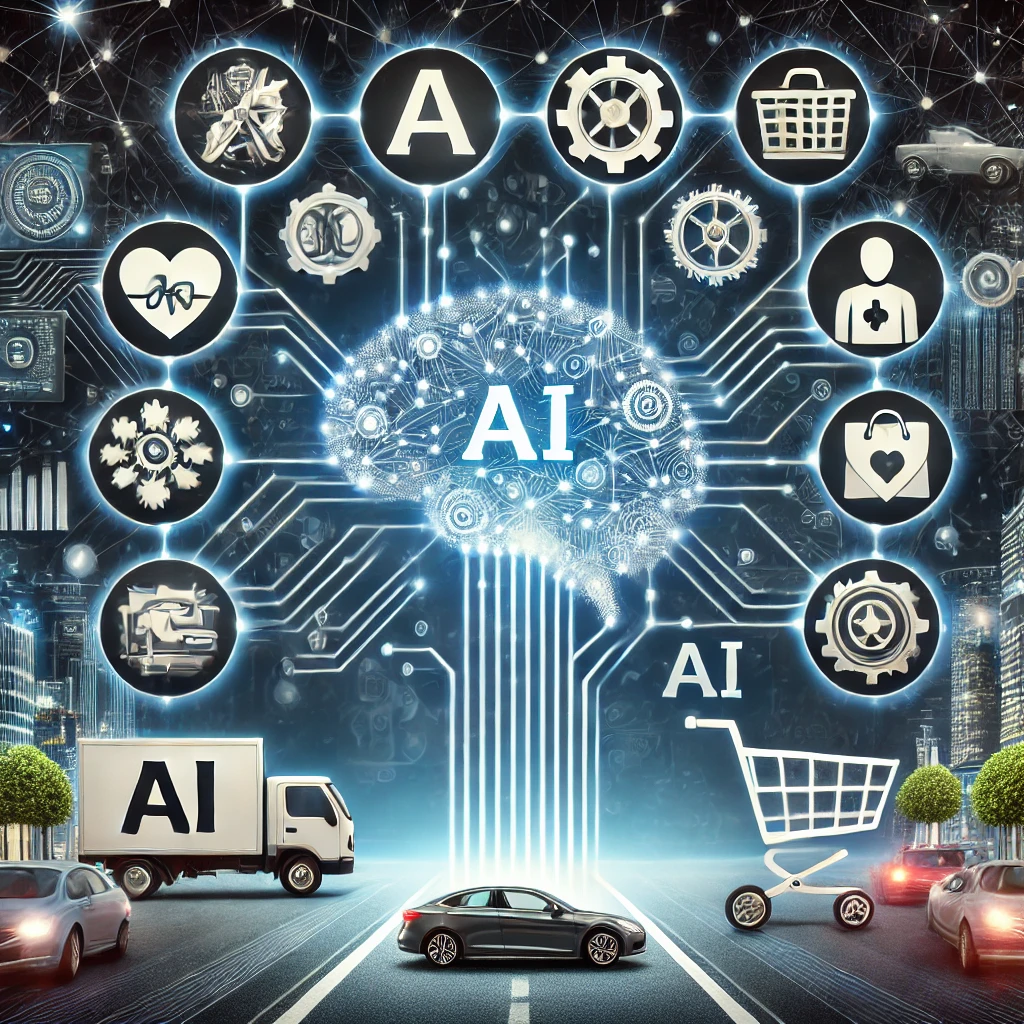
The Transformative Impact of AI Across Various Sectors
Artificial Intelligence (AI) is at the forefront of technological advancement, revolutionizing how industries operate and deliver services. This comprehensive exploration delves into how different sectors are leveraging AI to enhance their operations, drive efficiency, and set new standards in innovation.
Healthcare: Revolutionizing Patient Care
Enhancing Diagnostics and Personalized Treatment
In the healthcare sector, AI is making significant strides in enhancing patient diagnostics and personalized treatments. By analyzing complex medical data, AI algorithms can deliver quicker and more accurate diagnoses compared to traditional methods. These advancements are particularly evident in radiology, where AI can detect anomalies in medical images with high precision, often identifying conditions that human eyes might miss.
Streamlining Patient Care
AI-driven management systems are revolutionizing patient care by streamlining administrative tasks. These systems handle appointment scheduling, patient records, and billing, thereby reducing the administrative burden on healthcare professionals. As a result, doctors and nurses can focus more on patient care, improving overall efficiency and accessibility of healthcare services.
Predictive Analytics in Healthcare
Another critical application of AI in healthcare is predictive analytics. By analyzing patient data, AI can predict potential health issues before they become critical, enabling preventative care. This approach not only improves patient outcomes but also reduces healthcare costs by minimizing hospital readmissions and emergency room visits.
Finance: Enhancing Security and Customer Service
Advanced Risk Assessment and Fraud Detection
The finance sector has seen substantial benefits from AI, particularly in risk assessment and fraud detection. AI systems analyze vast volumes of transactions in real-time, identifying patterns that indicate fraudulent activities. These systems can adapt and learn from new threats, providing a robust defense against evolving fraud tactics.
Improving Customer Interactions
AI-powered chatbots and virtual assistants are transforming customer service in the financial industry. These tools offer 24/7 personalized financial advice, handling routine inquiries, and providing customers with immediate assistance. This not only enhances customer satisfaction but also frees up human agents to tackle more complex issues.
Predictive Financial Modeling
Financial institutions are leveraging AI for predictive modeling to forecast market trends and investment risks. By analyzing historical data and market conditions, AI can provide insights that help investors make informed decisions, optimizing their portfolios for better returns.
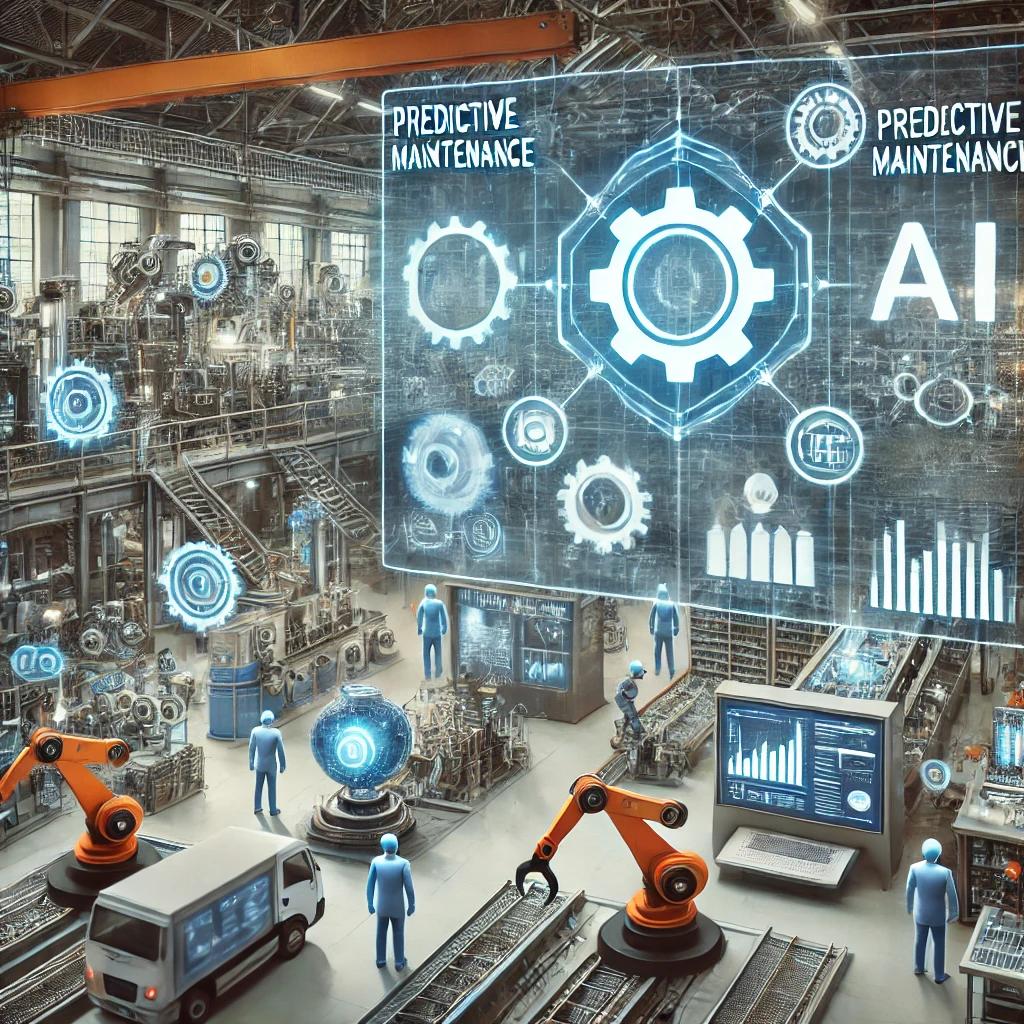
Manufacturing: Optimizing Production and Maintenance
Predictive Maintenance and Downtime Reduction
In manufacturing, AI is playing a crucial role in predictive maintenance. AI systems monitor machinery and predict failures before they occur, minimizing downtime and maintenance costs. By analyzing data from sensors embedded in machinery, AI can detect anomalies and schedule maintenance during non-peak hours, ensuring uninterrupted production.
Supply Chain Optimization
AI is also enhancing supply chain operations by optimizing logistics, inventory management, and production processes. Machine learning algorithms analyze supply chain data to predict demand, streamline inventory, and reduce waste. This leads to increased efficiency, lower costs, and a more resilient supply chain.
Quality Control
AI-powered quality control systems use computer vision and machine learning to inspect products for defects. These systems can identify and classify defects with high accuracy, ensuring that only high-quality products reach consumers. This not only reduces waste but also enhances customer satisfaction.
Retail: Personalizing the Shopping Experience
Customer Data Analysis and Behavior Prediction
In the retail sector, AI is revolutionizing how businesses interact with customers by personalizing the shopping experience. AI analyzes customer data to predict purchasing behaviors, enabling retailers to tailor their marketing strategies. This includes personalized recommendations, targeted promotions, and optimized inventory management to ensure supply meets demand.
Enhancing Customer Engagement
AI-powered chatbots and virtual shopping assistants provide customers with personalized support, answering queries, and guiding them through their shopping journey. These tools enhance customer engagement and satisfaction by offering a seamless and interactive shopping experience.
Inventory Management
Retailers are using AI to manage inventory more efficiently. AI systems predict stock levels and automatically reorder products when inventory is low, reducing the risk of stockouts and overstocking. This ensures that customers always find what they need, improving overall sales and customer loyalty.
Automotive: Driving the Future of Transportation
Autonomous Driving Technologies
The automotive sector is at the cutting edge of AI development, particularly in autonomous driving technologies. AI systems process vast amounts of data from sensors and cameras in real-time to navigate roads, recognize obstacles, and make driving decisions. These technologies promise to make transportation safer and more efficient.
Enhancing Vehicle Safety
AI is also improving vehicle safety through advanced driver-assistance systems (ADAS). These systems use AI to monitor driving conditions, alert drivers to potential hazards, and even take corrective actions to avoid collisions. This technology is a significant step towards reducing traffic accidents and enhancing road safety.
Optimizing Navigation Systems
AI-powered navigation systems offer real-time traffic updates, route optimization, and predictive maintenance alerts, making driving more convenient and efficient. These systems continuously learn from traffic patterns and driver behavior to provide the best possible routes and driving experience.
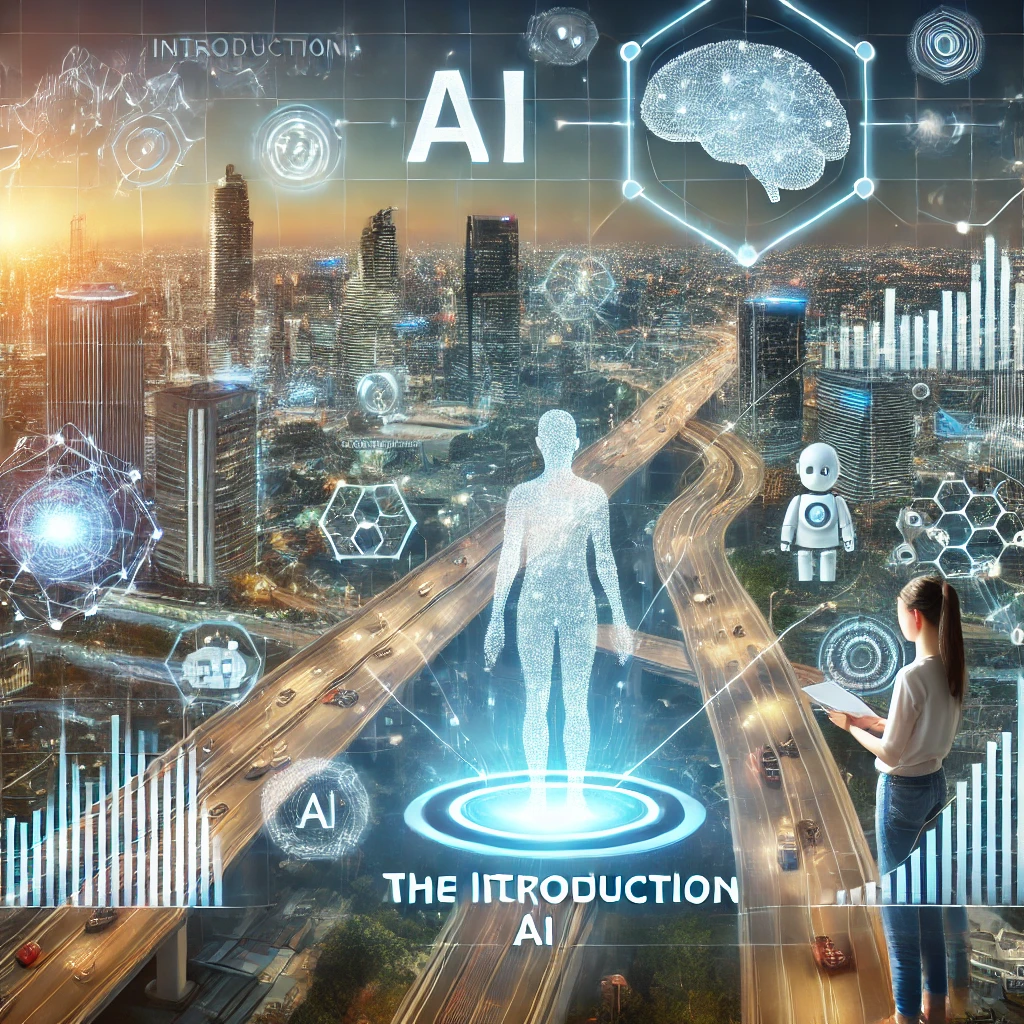
Introduction to AI Trends and Future Prospects
Artificial Intelligence is not just a buzzword; it is a pivotal force driving technological evolution and reshaping industries. This article explores the current AI trends that are driving significant changes across various sectors, promising even greater advancements in the near future.
Projected Growth Rate of the AI Industry in the Next Decade
The AI sector is poised for explosive growth, with a projected compound annual growth rate (CAGR) of 37.3% from 2023 to 2030. This growth is fueled by several factors, including the expansion of cloud-based applications, the proliferation of big data, and the increasing demand for intelligent virtual assistants. According to Grand View Research, the global AI market size was valued at USD 136.55 billion in 2022, highlighting AI’s massive economic impact and potential for future expansion.
Percentage of Businesses Currently Using AI in Their Operations
AI integration in business operations is on the rise, with 56% of businesses utilizing AI in at least one function, according to a survey by McKinsey & Company. Companies leverage AI to enhance efficiency, reduce costs, and provide personalized customer experiences. The ability of AI to analyze large datasets and provide actionable insights is a key driver of its widespread adoption across industries.
Top Sectors Benefiting from AI
AI is making substantial impacts in various sectors, including healthcare, finance, manufacturing, retail, and automotive. Each of these sectors demonstrates the broad applications of AI, driving efficiencies and fostering innovation.
Growth in AI Investment Over the Past Five Years
Private investment in AI has surged dramatically, reaching $93.5 billion globally in 2021, representing a 76% increase from the previous year, according to the Stanford University AI Index 2021 Annual Report. Investments have primarily focused on AI-driven healthcare solutions, autonomous vehicles, and business automation technologies. These investments are paving the way for innovative applications that are transforming industries and enhancing their operational capabilities.
Percentage of Jobs Predicted to be Replaced by AI in the Future
AI’s impact on the job market is significant, with both displacement and creation of jobs. The World Economic Forum predicts that while about 85 million jobs may be displaced by AI by 2025, approximately 97 million new roles will be created. This transition necessitates industries and workers to adapt, emphasizing the importance of reskilling and upskilling to meet the demands of an AI-driven economy.
Detailed Sector Analysis
Healthcare: A Deeper Dive
AI in Radiology and Imaging
AI applications in radiology are among the most promising developments in healthcare. AI algorithms can analyze medical images such as X-rays, MRIs, and CT scans to identify anomalies with remarkable accuracy. These algorithms can detect signs of diseases like cancer at an early stage, often before they are visible to the human eye. This early detection can significantly improve patient outcomes and survival rates.
Personalized Medicine
AI is also at the forefront of personalized medicine, where treatments are tailored to individual patients based on their genetic makeup, lifestyle, and other factors. By analyzing vast amounts of data, AI can identify patterns and correlations that help doctors customize treatment plans for each patient. This approach ensures that patients receive the most effective therapies with minimal side effects.
AI in Drug Discovery
The process of drug discovery is notoriously time-consuming and expensive. AI is revolutionizing this process by predicting how different compounds will interact with targets in the body. This accelerates the identification of potential new drugs and reduces the time it takes to bring them to market. AI models can simulate millions of chemical interactions, identifying promising candidates for further testing.
Finance: Enhancing Operational Efficiency
AI in Risk Management
Risk management is critical in the financial sector, and AI is enhancing this area by providing more accurate risk assessments. AI models analyze historical data and current market conditions to predict potential risks. This allows financial institutions to make informed decisions and mitigate risks more effectively.
Algorithmic Trading
AI-driven algorithmic trading is another significant application in finance. AI algorithms can analyze market data in real-time and execute trades at optimal times, maximizing profits and minimizing losses. These algorithms can react to market changes much faster than human traders, giving them a competitive edge.
Personalized Financial Services
AI is also personalizing financial services, offering tailored advice and products to customers. By analyzing customer data, AI can recommend investment strategies, savings plans, and loan products that best fit individual needs. This personalized approach enhances customer satisfaction and loyalty.
Manufacturing: Driving Efficiency and Innovation
Smart Factories
The concept of smart factories is becoming a reality with AI. These factories use AI to automate and optimize production processes. AI systems monitor every aspect of production, from raw material procurement to finished product delivery, ensuring maximum efficiency and minimal waste.
Collaborative Robots (Cobots)
Collaborative robots, or cobots, are designed to work alongside human workers, enhancing productivity and safety. AI enables these robots to learn from their environment and adapt to different tasks. Cobots can handle repetitive or dangerous tasks, allowing human workers to focus on more complex and creative aspects of manufacturing.
AI in Product Design
AI is also revolutionizing product design by simulating various
design options and predicting their performance. This allows engineers to test and refine designs virtually before producing physical prototypes, reducing time and costs associated with product development.
Retail: Transforming the Shopping Experience
AI in E-commerce
In e-commerce, AI is transforming the shopping experience by providing personalized recommendations and dynamic pricing. AI algorithms analyze customer behavior and preferences to suggest products they are likely to purchase. This increases sales and improves customer satisfaction.
Visual Search
AI-powered visual search allows customers to search for products using images rather than text. By uploading a photo of an item, customers can find similar products available for purchase. This feature enhances the shopping experience and makes it easier for customers to find what they are looking for.
In-store AI Applications
In physical retail stores, AI is being used for inventory management, customer service, and even theft prevention. AI systems can track inventory levels in real-time, ensuring shelves are always stocked with popular items. AI-powered kiosks and robots can assist customers with finding products and answering questions, enhancing the in-store experience.
Automotive: Pioneering Autonomous Vehicles
AI in Vehicle Design and Manufacturing
AI is not only driving autonomous vehicle technology but also revolutionizing vehicle design and manufacturing. AI algorithms simulate vehicle performance and safety features, optimizing designs for better performance and safety. In manufacturing, AI ensures precision and quality control, reducing defects and enhancing production efficiency.
Fleet Management
AI is also improving fleet management for commercial vehicles. AI systems analyze data from vehicles to optimize routes, predict maintenance needs, and improve fuel efficiency. This reduces operational costs and enhances the reliability of fleet operations.
AI in Ride-sharing Services
Ride-sharing companies are leveraging AI to match riders with drivers more efficiently, optimize routes, and predict demand patterns. This ensures faster service, reduces wait times, and enhances the overall user experience.
Conclusion: Embracing AI’s Transformative Power
AI is not just a futuristic concept but a transformative force that is actively reshaping various sectors. From healthcare to automotive, AI is driving efficiency, innovation, and growth. The projected compound annual growth rate of 37.3% through 2030 underscores AI’s expanding influence and potential.
Businesses across sectors are increasingly integrating AI into their operations, with 56% of companies already utilizing AI in some capacity. This trend is set to continue as AI technologies become more advanced and accessible. However, the adoption of AI also brings challenges, particularly in the job market. While some jobs may be displaced by AI, new roles will emerge, necessitating reskilling and upskilling of the workforce.
Staying informed about AI developments and being adaptable to technological changes will be crucial for businesses and individuals alike. Embracing AI’s full potential will enable us to thrive in an AI-enhanced world, driving innovation and improving our quality of life.
Sources
- Grand View Research: Provides a detailed report on AI market growth.
- McKinsey & Company: Offers insights from a survey on AI adoption in businesses.
- Stanford University AI Index 2021 Annual Report: Highlights trends in AI investment.
- World Economic Forum: Reports on AI’s impact on employment and future job market predictions.
These resources offer valuable insights into AI’s trajectory and its integration into business and society, helping us understand and navigate the rapidly evolving AI landscape.
Next Blog: https://rankrisetech.com/benefits-of-ai-for-business

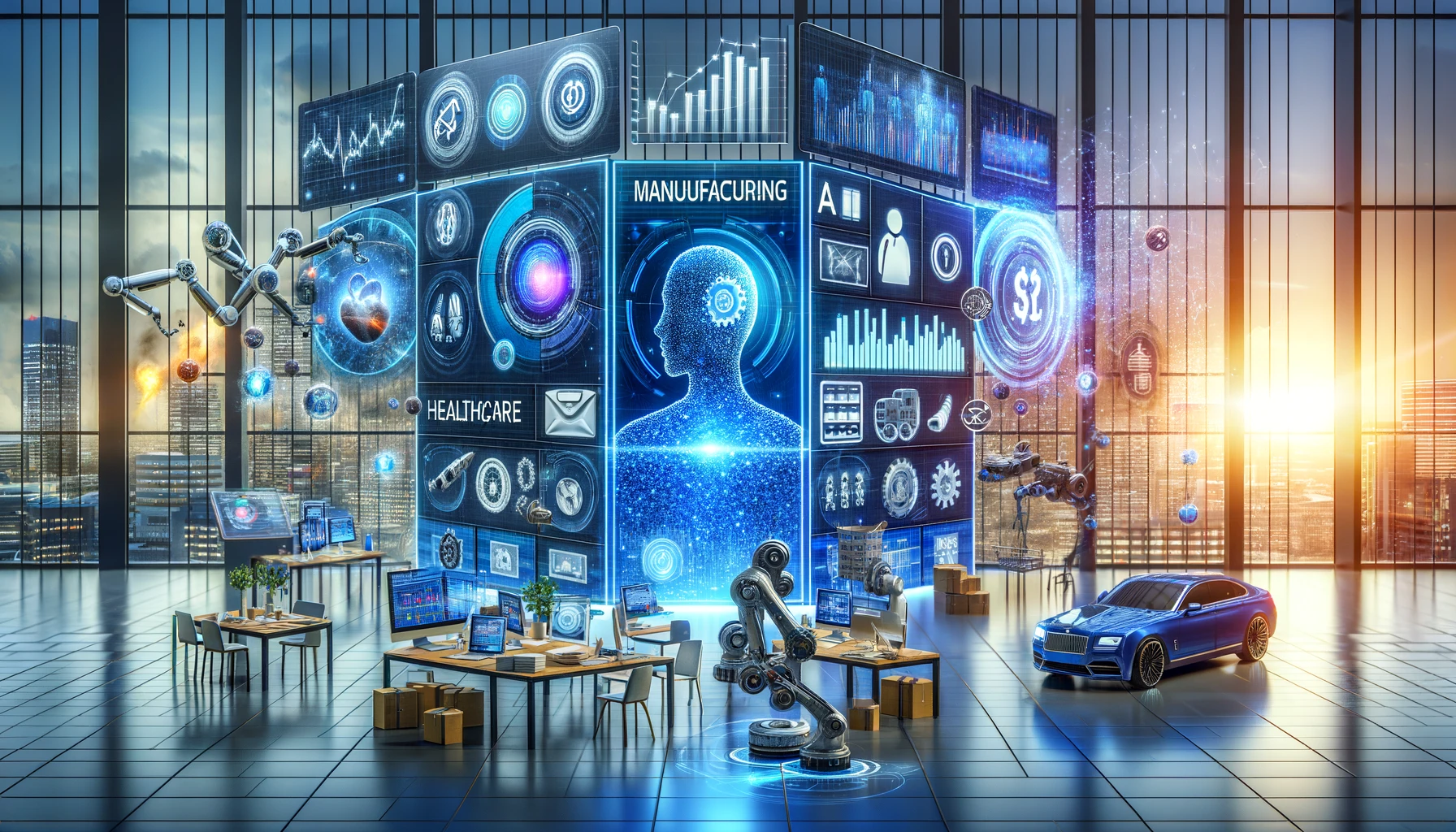
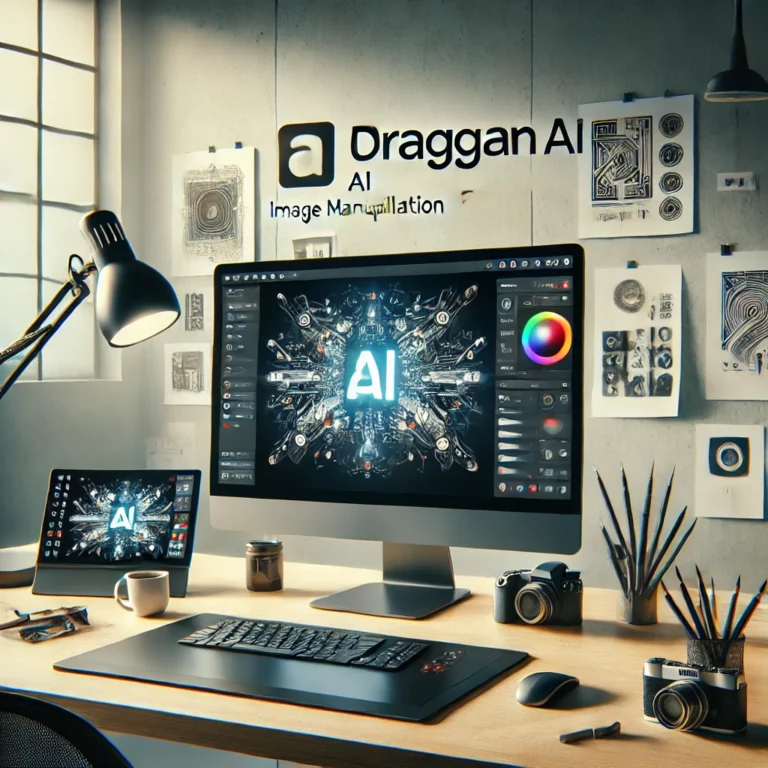


Pingback: Ultimate Tubebuddy Review 2024 - Rank Rise Tech